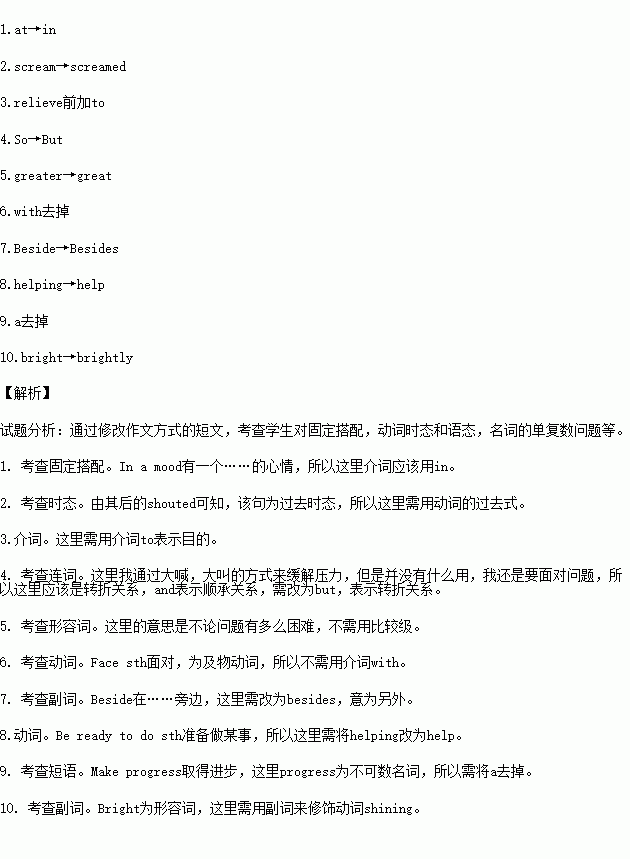题目内容
假定英语课上老师要求同桌之间交换修改作文,请你修改你同桌写的以下作文。文中共有10处语言错误,每句中最多有两处。每处错误仅涉及一个单词的增加、删除或修改。
增加:在缺词处加一个漏字符号(∧),并在其下面写出该加的词。
删除:把多余的词用斜线(\)划掉。
修改:在错的词下画一横线,并在该词下面写出修改后的词。
注意:1.每处错误及其修改均仅限一词;
2.只允许修改10处,多者(从第11处起)不计分。
Many times when I was at a bad mood I shouted at the people around me. I scream, shouted and ran as fast as I could relieve my pressure. So it was useless, since I still had to return to the problem. This term I begin to change. I have realized however greater the difficulty is, I have to face with it. It's no use screaming and shouting at others. Beside, there are teachers and friends around me who are ready to helping me. As long as I try my best, I can make a progress in any aspect. Now I feel every day is a pleasant day and the sun is always shining bright on my face.
 阅读快车系列答案
阅读快车系列答案
